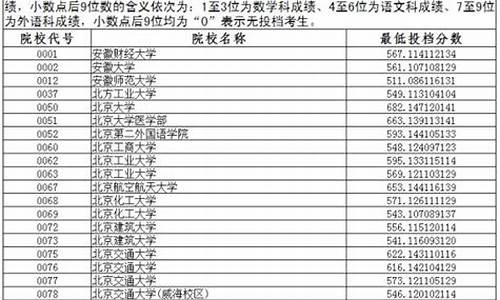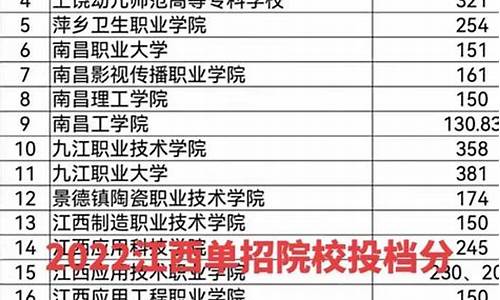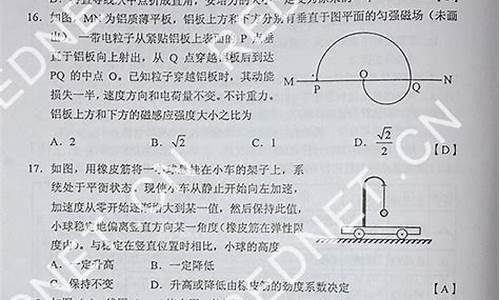您现在的位置是: 首页 > 教育研究 教育研究
2014年高考冠词_14年高考英语
tamoadmin 2024-05-30 人已围观
简介1.冠词高考题的详解12.高中英语语法解题秘诀3.高考语法填空如何复习4.急!!高考!冠词the的用法。5.如何用一种最为便捷有效的的方法解决冠词的高考题?谢谢!……-.-||冠词有定冠词和不定冠词不定冠词是泛指定冠词是特指做题时常出现的不定冠词是a/an定冠词是the比如a apple一个苹果可以是任何一个苹果另外an是用在元音前面了解下元音噢the apple要结合语境如只指桌上的苹果冠词高考
1.冠词高考题的详解1
2.高中英语语法解题秘诀
3.高考语法填空如何复习
4.急!!高考!冠词the的用法。
5.如何用一种最为便捷有效的的方法解决冠词的高考题?谢谢!

……-.-||
冠词有定冠词和不定冠词
不定冠词是泛指定冠词是特指
做题时常出现的不定冠词是a/an定冠词是the
比如a apple一个苹果可以是任何一个苹果另外an是用在元音前面了解下元音噢the apple要结合语境如只指桌上的苹果
冠词高考题的详解1
冠词确实很麻烦,你需要记很多东西。发一个别人总结的东西给你,多看多练吧。像你不明白的有时候我们凭语感就知道该怎样填,所以多练吧。具体讲出来有太多的规则。
冠词是一种虚词,用在名词或名词词组的前面,表示名词是特指还是泛指。冠词可分为不定冠词和定冠词两种形式。 不定冠词有 a, an。 定冠词有 the. 其中, a 用在发音以辅音开头的名词之前, 而 an 则用在发音以元音开头的名词之前。
不定冠词的用法:
1. 表示某一类人或某事物中的任何一个,经常用在第一次提到的某人或某物,用不定冠词起介绍作用,表示一个.
I gave him a book yesterday. 我昨天给了他一本书。
I have got a ticket. 我有一张票。
There is a tree in front of my house. 我的屋前有一棵树。
2. 用在事物的单位前面,如时间,速度,价格等意义的名词之前。表示“每一”。
We often go to school two times a day. 我们常常一天去学校两次。
I went to the library once a week at least. 我一周至少去一次图书馆。
3.用来表示某人或某物,但是不具体说明任何人或任何物。就是个泛指的概念。
A boy came to see you a moment ago. 刚才有一个小孩来找你。
I got this tool in a shop. 我在商店买的这件工具。
4. 不定冠词用于某些词组
A few 几个 a little有点
She has a few friends in this city. 她在这城市有几个朋友。
There is a little milk in the bottle. 这瓶子里还有一点儿牛奶。
5.用于感叹句中
What+a/an+(形容词)+单数可数名词+主语+谓语!
What a good person she is ! 她是多么好的一个人啊!
What an apple that is! 多诱人的苹果啊!
定冠词的用法:
1) 定冠词特指某(些)人或某(些)事物, 以区别于同类中其他的人或事物。
The bag in the desk is mine. 桌子里的书包是我的。
Is this the book you are looking for? 这是你要找的书吗?
Do you know the man in back? 你知道穿黑色衣服的人是谁吗?
2) 定冠词用来指上文中已提到过的人或事物。
I bought a book from Xinhua book-shop. The book costs 15 yuan.
我从新华书店买了一本书. 这本书值十五元。
I saw a film yesterday.The film was ended at eight o'clock.
我昨天看了一场**。**八点钟结束的。
3) 定冠词用于表示世界上独一无二的事物或用于自然界现象或方位名词之前。
the sun the moon the earth the sky the world
The sun is bigger than the moon. 太阳比月亮大。
I can see a bird in the sky. 我能看到天空中有一只小鸟。
4) 定冠词与单数名词连用,表示这一类人或物。
The dog is not too danger. 狗不太危险。
The cat is an animal. 猫是一种动物。
5) 定冠词与某些形容词连用,使形容词名词化, 表示某一类人。
the poor, the rich, the wounded, the sick, the deaf.
The wounded were brought to the hospital. 受伤者被送到了医院。
He always helps the poor. 他经常帮助穷人。
The deaf can go to this special school. 耳聋者可以进这所特殊学校上学。
6)定冠词用在演奏乐器的名称和文艺活动,运动场所的名称前。
The little girl likes to play the violin. 小女孩喜欢拉小提琴。
They are going to the cinema tonight. 他们今晚要去影院看**。
The theater was on fire last week. 剧院昨天着火了。
7) 定冠词用在姓名复数之前,表示一家人。
The Greens is very kind to us. 格林一家人待我们很好。
The Whites like the classic music. 怀特一家喜欢古典音乐
不用冠词的场合。
1) 专有名词,抽象名词和物质名词之前一般不用冠词。
China is a largest country in the world. 中国是世界上最大的国家。
I think water is a kind of food, too. 我认为水也是一种食物。
Cotton feels soft. 棉花摸起来柔软。
2) 表示日常餐食名词之前不用冠词,但如果指具体的饮食时用定冠词 the。
It's time for breakfast. 该吃早饭了。
What do you have for lunch? 你午饭吃点什么?
The dinner I had at that restaurant was expensive. 我在那家饭店吃的饭很贵。
3) 在季节,月份,星期,节日。球类运动,棋类游戏的名词之前不用冠词。
Summer is hot and winter is cold here. 这儿夏天热冬天冷。
New Year's Day is coming. 新年就要到啦。
4) 语言的名称前不用冠词。
Can you speak English? 你会讲英语吗?
It's difficult to learn Chinese well. 要学好中文很难。
Tom knows English but he doesn't know French. 汤姆懂英语但不懂法语。
5) 某些固定词组不用冠词。
by air, on foot, at night, after school, at home, go to class, in fact, from morning till night.
I'm going to Chicago by air next week. 下周我要乘飞机去芝加哥。
I go to school on foot . 我步行去学校上学。
In fact, I don't know him at all. 实际上,我一点也不认识他。
He is at home today. 他今天在家
高中英语语法解题秘诀
冠词一向是考试的难点,很多都有一定的规律,但英语真的是太广博了,有很多用法都是不能用语法来解释的,毕竟语言是变化多端的,而语法是死的。所以说这种题碰上了只能记下来,还有就是要培养语感,多读多看英语文章,而不是一味地做题。下面是“attention”的解释和例句,没有一个是在前面加“a”的。
新牛津英汉双解大词典
attention
noun
[mass noun]
notice taken of someone or something; the regarding of someone or something as interesting or important
关注;注意
he drew attention to three spelling mistakes.
他注意到三个拼写错误。
you've never paid that much attention to her opinions.
你从未如此关注过她的想法。
■the mental faculty of considering or taking notice of someone or something
注意力
he turned his attention to the educational system.
他把注意力转移到了教育系统。
the action of dealing with or taking special care of someone or something
关心;照料
her business needed her attention.
她的事业需要她专心致志。
he was found guilty of failing to give a patient adequate medical attention.
他被认定对病人的治疗没有尽责。
■[count noun](attentions)a person's interest in someone, especially when unwelcome or regarded as excessive
(尤指不受欢迎的或过分的)关注
his primary aim was to avoid the attentions of the newspapers.
他的首要目的是要避开报界的关注。
■[count noun](attentions)a person's actions intended to express sexual or romantic interest in someone, sometimes when unwelcome
殷勤
she felt flattered by his attentions.
他的殷勤使她觉得很荣幸。
(Military)a position assumed by a soldier, standing very straight with the feet together and the arms straight down the sides of the body
(军)立正
Saunders stood stolidly to attention.
桑德斯笔直地立正。
we paraded outside for the Sergeant-Major, shivering at attention.
我们在外面为军士长进行队列操练,立正时瑟瑟发抖。
■[as exclamation]an order to assume such a position
新牛津美语大词典
attention
[?tenCH?n]
noun
notice taken of someone or something; the regarding of someone or something as interesting or important:
he drew attention to three spelling mistakes
you've never paid that much attention to her opinions.
■the mental faculty of considering or taking notice of someone or something:
he turned his attention to the educational system.
the action of dealing with or taking special care of someone or something:
the business needed her attention
he failed to give the patient adequate medical attention.
■(attentions) a person's interest in someone, esp. when unwelcome or regarded as excessive:
his primary aim was to avoid the attentions of the newspapers.
■(attentions) a person's actions intended to express interest of a sexual or romantic nature in someone, sometimes when unwelcome:
she felt flattered by his attentions.
(Military )a position assumed by a soldier, standing very straight with the heels together and the arms straight down the sides of the body:
the squadron stood to attention when we arrived
midshipmen standing at attention.
■(as exclamation) an order to assume such a position.
高考语法填空如何复习
高中英语是教育教学的重要课程,在高考中占据着非常重要的比重,是大分值科目之一。下面是我给大家整理的,供大家参阅!
语法填空的考查范围:
1. 语境 上下文;
2. 语法:
动词时态、语态、主谓一致、非谓语形式、名词、代词、冠词、介词、固定搭配、
情态动词、复合句、形容词和副词的比较级最高阶及构词法、倒装等。
语法填空的能力要求:
1. 阅读/理解语篇的能力
3. 熟练运用语法的能力
2. 分析句子结构的能力 4. 单词拼写能力 型别 简单句: 并列句 复合句 五种基本句转折 因果 联合 选择 主语从句 宾语从句 表语从句 同位语从句 形容词性从句: 定语从句 时间,地点 原因,目的 状语从句 结果,条件方式,让步
注意事项
1. 动词注意时态,主被动,非谓语等善于联络上下文,一些词的时态和语态等形式可以由此推出。
2. 留意句号、逗号,如空前是逗号,则考查非限制性的定语从句或插入语的机会极大。
3. 注意长句中短语的前后响应。
eg: Students must devote as much of their time as possible, at and after school,
college entrance exams. to
4. 填名词时要特别注意要不要复数。可以看后面谓语动词是什么形式,也可以看前面有无one of.
5. 有些空的答案需看完下文才能确定。 eg: A new study from Finland shows pet owners tend to be heavier, active and in poorer health than people without a pet, which was __released in PLOS ONE?
07汕头一模此空less与more都可填,但看完下文就知只能填less。
6. 填词的适当形式有时会要求填反义词。 eg: Many people in the USA think that doctors are overpaid. Most doctors, agree however.. 此空应填disagree。由于句中的“however” 可以看出该句与上句是相反的, 故用agree的反义词。
7. 一空有可能是2-3词,而出现这种情况通常是固定结构。如to+动词原形,be+-ed分词表被动,或适当的时态,如have been doing等。
8. 有些可能令人觉得不用填句子也通,这时要特别留意有没有可能是下列这些情况: 反身代词;do/did/does作强调时的使用;that作主表从句的引导词。
9. 句首设空,以“ ”的形式出现,立即想起这些词:however, therefore, besides,otherwise。
10. 在高考评分标准原则上,能用一个词的就尽量用一个词。
一、语法填空“新”在哪里
1.语法填空是2014年英语高考中的新题型,共10个小题,每小题1.5分,满分仍为15分,难度却大大加大。
2.语法填空题旨在考查大家在阅读理解的基础上对语法和语言知识的掌握情况,着重考查综合运用语言的能力。这样,我们在平时准备的时候就要花更多的功夫。除了熟记、熟练语法、单词,还应该多做阅读题,在掌握基础知识的基础上,提升运用语言知识的能力。
3.语法填空主要有短文和对话两种形式,短文略简单,但参考其他省份的高考命题情况,以短文形式为多。文章长度在200词左右,命题形式主要有纯空格形式和提供单词原形两种形式。就语法点而言,实词 具有实际意义,能够充任主语、宾语或谓语的词以考查动词、代词、形容词、副词为主,而动词又是重中之重;虚词以介词、冠词、连词、代词为主;句法则以复合句定语从句、名词性从句、状语从句的引导词 为主。
二、解题步骤
1.通读全文,了解大意,为下一步填空做好准备。
2.试填空格,先易后难,这是解题的关键。要结 合短文所提供的特定的语境也就是上下文,从句子结构的完整性去分析思考空格所缺单词的词性,再根据句子的意义,以及句子之间的逻辑关系来确定具体要填的单词和所给词的正确形式。
3.重读全文,解决难题,检查答案。所有空格填好后,要把整篇文章从头至尾复读一遍,检查单词拼写,大小写,词的单复数等是否正确。
三、解题技巧
一纯空格试题
首先分析句子结构,确定填哪类词;再根据句子意思,确定具体填什么词或根据两句间的逻辑关系确定具体用哪个连词。
注:句子的基本结构:
主语 + 谓语动词+ 宾语
主语 + 系动词+ 表语
He likes football.
She is beautiful.
1、缺主语或宾语,一定是填代词或名词多考代词
I can send a message to Lily whenever I want, and __it___gets there almost in a second.
解析:横线后的词get是动词,作谓语,横线上的词为主语,则应填入名词或是代词,而此句译为:我可以在任意时间给Lily资讯,而且它立刻就可以送到她那儿了。因而应该填入代词it代替message。
2、名词前是空格,且该名词前无限定词,如:冠词a/an/the,形容词性物主代词his/her/your/my等,名词所有格人称’s,基数词one等,序数词the first等,量词a pair of 等或不定代词some, any, others, another等,则很可能是填限定词。
It is said that a short-tempered man in Song Dynasty960-1279 was very anxious to help__his___ rice crop grow up quickly.
解析:rice米饭,是一个名词,前面没有限定词,而此句译为据说宋朝有一个急性子的人,他想让他的水稻长快点。因此,应填入形容词性的物主代词his.
3. 名词或代词前面是空格,句中本身已经有主语、表语、宾语,说明该名词或代词不作句子的主语、宾语、表语,则应填入介词。 ---who should have the honor of receiving me__as___a guest in their house.
解析:空格位于名词a guest 前面,a guest不作句子的主语、宾语、表语,而句子译为:谁有荣幸让我能作为客人到他家去呢?因此,填入介词as表示作为。
4.若两个或几个单词、短语之间没有连词,可能是填连词and等 Each winner receives a gold medal, a diploma, __and__ a sum of money. 解析:gold medal金牌,diploma证书,a sum of money一大笔钱, 都是名词,因此应该填入连词and.
5. 若两句一个主谓关系算一个句子之间没有连词,也没有分号或句号,一定是填连词before, when, but等
I wanted to visit my grandpa__before__ I went to Beijing.
解析:I want to visit my grandpa, I went to Beijing是两个句子,句中无分号或句号,而句子译为:我想在去北京之前看看我的爷爷,因此填入before.
6. 若结构较完整,空格后的谓语动词是原形,特别是与上下文时态不一致或主谓不致时,很可能是填情态动词can, should等 或表示强调、倒装的助动词do, does, did.
To their credit, the four countries __do__work together in some areas. 解析:work为动词原形,此句主谓宾不缺,结构较为完整,翻译为:值得赞扬的是这几个国家确实在一些领域合作了。因此填入do表示强调。
7. 由特殊句式来判断空格处应填入的词。如:it iswas---that强调句,倒装句it作形式主语、宾语等。
__It__ is important for us students to study hard at school.
二给出了动词的题
首先判断要填的词是谓语动词还是非谓语动词,然后按以下两点进行思考。
1.若句子中除了所给出的动词外没有别的动词,则该动词在剧中充当谓语动词,涉及时态尤其要注意主语是第三人称单数时的变化和语态 被动语态be+done的变化.
In London, three people __were taken__taketo a hospital,while others were treated at a local clinic.
解析:three people ____taketo a hospital句中,有且仅有一个动词take, 说明它在句中作谓语,为谓语动词,有时太语态变化,而句子译为:在伦敦三个人被送到医院治疗,而其他人都在当地的诊所。Three people是被送到医院,存在被动,因此填入were taken。
奇速英语线上教育:
2.若句中已有谓语动词除了所给动词外还有别的动词,又不是并列谓语时,所给动词就是非谓语动词, 就要确定用V-ing形式表示主动和进行、V-ed形式表示被动和完成,还是用不定式形式todo表示目的和将来。
__Toplete__ plete the project on time, we will have to work two more hours.
解析:we will have to work two more hours句中已有谓语will have to work,因此plete为非谓语,而句子译为:为了准时完成计划,我们不得不多工作两个小时。填入To plete表示目的。
三词类转换试题
根据该词在句子所作的句子成分确定用哪种形式。
1.作表语,定语或补语,通常用形容词形式。
be+ adj 作表语; 定语相当于一个adj,放在名词前
The youth immediately felt _silent___silence as tears flew down his big blue eyes.
解析:feel是系动词,常接adj作表语,silence的名词形式是silent安静的。
腾讯认证蔡章兵主编qq757722345空间每天3篇免费英语资源,欢迎关注!
2.所给的词作句子的主语、及物动词或是介词之后的宾语,用名词形式。
These people have made a great _contribution___contribute to China with their work.
解析:These people作句子主语,have made作谓语,则a great ____ 应该做宾语,填入contribute的名词形式contribution
3.在冠词、形容词性物主代词后,或“冠词+形容词”后,用名词形式 With the large numbers of students , the __ operation __operate of the system does involve a certain amount of activity.
解析:the 是冠词,后面应该跟operate的名词形式operation, 句子译为:因为学生数量太多,这个系统的执行还需要大量的实践。
4.用副词形式修饰动词、形容词、副词,或整个句子,作状语 As I looked _closely___ close at this girl, I found that—
解析:look动词作状语,用副词closely
5.有的时候会不必改变词类,而要求通过加上字首im/ un-等,字尾-less等,填入括号中所给词的反义词。
Your mistake caused a lot of __unnecessary_necessarywork in the office.
解析:work 名词,前面应该是用形容词作定语,而此句译为:你的错误给办公室带来了很多不必要的错误。因此通过加上字首un-,填入necessary的反义词unnecessary不必要的
注意:有时,括号中所给词是动词,但不一定就考查谓语动词或非谓语动词,也有可能是考查词类转换。特别注意,如果括号中所给的词是形容词,所考察内容不外乎其反义词,副词,比较级和词类转换。
急!!高考!冠词the的用法。
系统的掌握语法知识,了解语法功能。
语法填空题主要是考查考生的语法运用能力,所以考生必须掌握语法,了解语法的主要功能,在此基础上才能做到运用语法。同时要了解各项的语法功能,能够准确的分析句子结构和句子成分,只有掌握了这些基本的语法知识,答题时才能有充分的依据,否则无从下手。
积累基础词汇,掌握常用的短语搭配
语法填空考察的就是考生的语言输出能力,所以考生必须重视对基础词汇的拼写,否则就会吃大亏。对于常用、易错的词就要多下工夫记忆,如不规则的动词的过去式、分词的拼写等,都要烂熟于心。
在平时复习中,要积累习语,短语等,对固定搭配要了然于心。
强化语篇意识,提高理解能力
语法填空提的最大特点就是在语篇中考察语法知识,准确理解短文是作好题的基础。所以考生平时就应该选择一些有难度的文章进行精读,并研究文章的写作思路,组织结构等,适当的利用完形填空来加强语法意识。
如何用一种最为便捷有效的的方法解决冠词的高考题?谢谢!
定冠词the的用法
1.特指某(些)人或某(些)物,这是定冠词的基本用法。
Beijing is the capital of China. 北京是中国的首都。
2.指谈话双方都知道的人或事物。
Open the window please. 请把窗户打开。(双方都知道指的是哪一扇窗户)
3.指上文已经提到的人或事物。
There was a chair by the window. On the chair sat a young woman with a baby in her arms.
窗户附近有一把椅子。椅子上坐着一位年轻妇女,怀里抱着一个婴儿。
4.指世界上独一无二的事物。
Which is the biggest, the sun, the earth or the moon? 太阳、地球和月亮哪一个最大?
5.用在序数词、形容词最高级前。
The first truck is carrying a few baskets. 第一辆卡车装运一些筐。
6.用在由普通名词构成的专有名词前。
the Great wall长城,the Summer Palace颐和园,
the People’s Farm人民农场,the Science Museum科学馆
7.用在某些形容词前,表示某一类人。
the rich富人 the poor穷人 the sick病人 the old老人,
the young年轻人 the blind盲人 the dead死人
8.用在姓氏复数形式前,表示“全家人”或“夫妇俩”。
The Turners are going home on a train. 特纳夫妇在回家的火车上。
9.用在方位词前。
on the left/right在左/右边
in the east/west/north/south在东/西/北/南方
at the back/front of在……的后/前面
10.用在乐器名称前。
Do you like playing the piano or the violin? 你喜欢弹钢琴还是喜欢拉小提琴?
11.用在表示海洋、河流、山脉、群岛及国家和党派名词前。
the East China Sea 东海the Huai River 淮河
the Jinggang Mountains 井冈山the United States of American 美国
12.用在某些固定词组中。
all the same 仍然all the time 一直
all the year round 一年到头at the age of 在……岁时
at the beginning of 起初; 开始at the end of 在……的尽头/末尾
at the entrance of 在……门口at the foot of 在……脚下
at the head of 在……的前面at the moment 此刻
at the same time 同时by the side of 在……附近
by the time 到时候by the way 顺便说
catch the post 赶上邮班do the shopping/washing 买东西/洗衣服
give...the message 捎口信给……go to the classroom 去教室
in the end 最后;终于in the hat 戴帽子的
in the middle of the day 中午in the morning/afternoon / evening 在上午/下午/晚上
in the open air 在户外;在野外jump the queue 不按次序排队
lead the way to 引路;指路look the same 看起来很像
on the earth 在地球上tell the truth 说实话
the day after tomorrow 后天the day before yesterday 前天
the high jump 跳高the long jump 跳远
the next day 第二天the next year下一年
the people 人民the starting line起跑线
三、不用冠词的情况
1.在专有名词和不可数名词前。
I’m going to England next week for a holiday.下周我将要去英国度假。
2.可数名词前已有作定语的物主代词my, your, his, her等;指示代词this/ these, that/those; 不定代词some, any等及所有格限制时。
The letter is in her pocket. 信在她的衣袋里。
3.复数名词表示一类人或事物时。
My father and mother are teachers. 我的父亲和母亲是教师。
4.在星期、月份、季节、节日前。
The best time to come to China is in spring or autumn. 到中国来的最好时间是春季或秋季。
Today is Thursday, September 10th, Teacher’s Day. 今天是九月十日,星期四,教师节。
[注意] 如果月份、季节等被一个限定性定语修饰,则要加定冠词。
He joined the Army in the spring of 1982.他在1982年春季参军。
5.在称呼语或表示头衔的名词前。
Happy Teachers’ Day, Miss Zhao!
Here it is, Mom!
6.在学科名称、三餐饭和球类运动名称前。
I think Chinese is more popular than any other subject. 我认为汉语比其它学科更普及。
Can you play basketball? 你会打篮球吗?We are going to play football. 我们去踢足球。
[注意]I can see a football.(指足球,并非“球类运动”)
Where’s the football.
7.某些固定词组中不用冠词。
①与by连用的交通工具名称前
by bus, by car, by bike, by train, by air/plane, by sea/ship
②名词词组
day and night, brother and sister, hour after hour, here and there
③介词词组
at home在家in surprise惊奇地
at noon在中午on foot步行
at night在晚上on duty值日
at work在工作on time准时
for example例如on business经商
in school在上学on holiday在度假
in class在上课on show展览
in hospital在住院on top of在……顶部
in bed在床上
④ go短语
go home回家go to bed上床睡觉
go to school去上学go to work去上班
go shopping/swimming/boating/fishing去买东西/游泳/划船/钓鱼
冠词作为一种虚词,在英语中只能和名词一起使用。英语中的冠词分为不定冠词和定冠词。
1.不定冠词的用法
不定冠词有两个,a 和 an。a用在辅音开头的单词前面;an用于以元音开头的单词前。如:a book, an apple。
1) 不定冠词用在但数可数名词前表示“某一个”。如:
There is a policeman at the door.
门口有个警察。
2) 不定冠词用在单数可数名词之前,表示“任何,每个”。如:
A car must be insured.
汽车一定要上保险。
A soldier must obey orders.
军人必须服从命令。
3) 不定冠词用于头一次出现的单数名词之前。如:
There is a box in the room. The box is heavy.
房间里有个箱子。这个箱子很重。
4) 不定冠词和名词连用作表语或同位语,主要说明某个人或东西所属类别。如:
She is a teacher. 她是个老师。
We all thought him a suitable person for the job.
我们都认为他是适合做这个项目的人。
5) 定冠词用在价格、速度、比率等短语中。如:
six kilometers an hour 每小时60公里
3 times a day 每天三次
ps:真正看完 做几道真题









